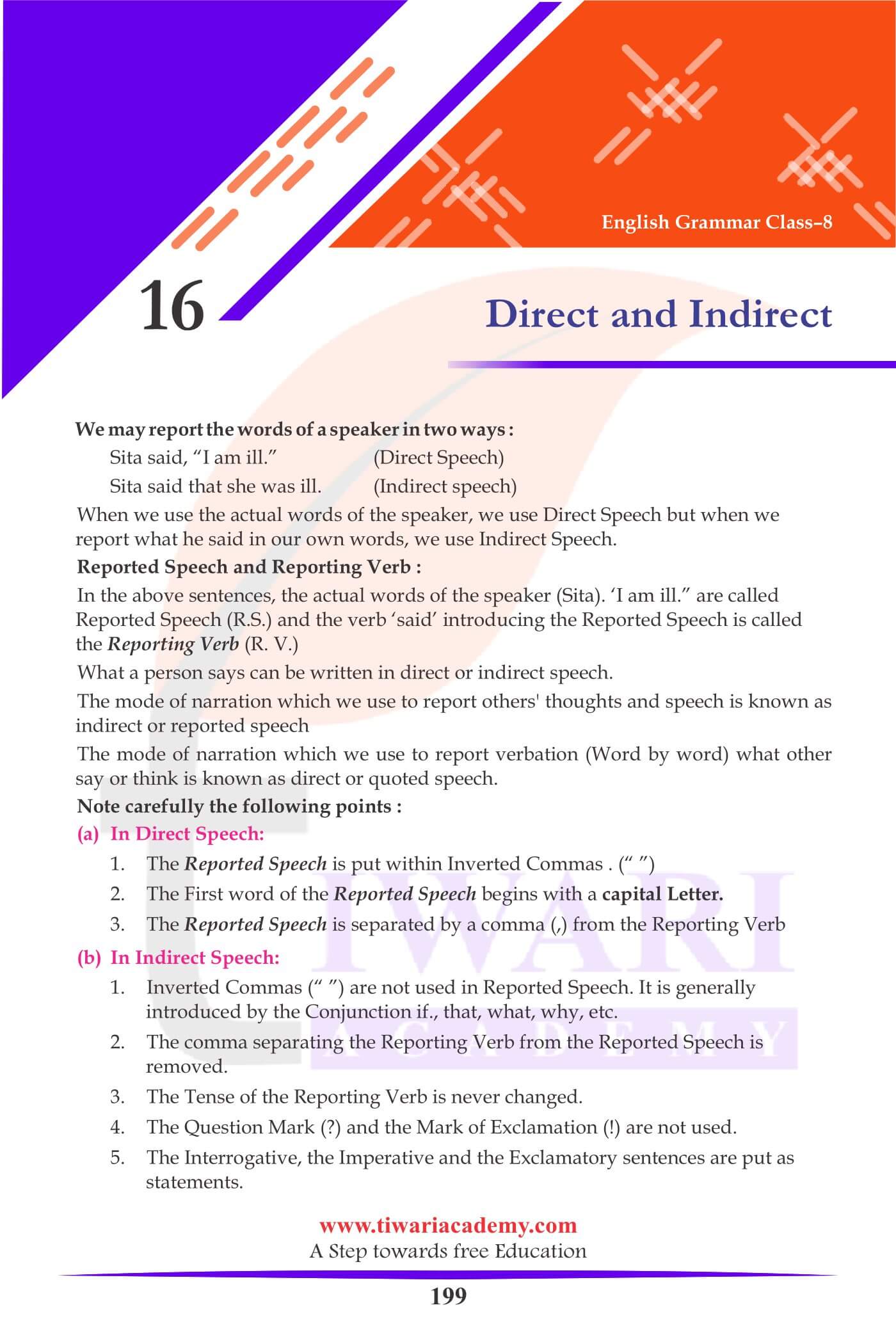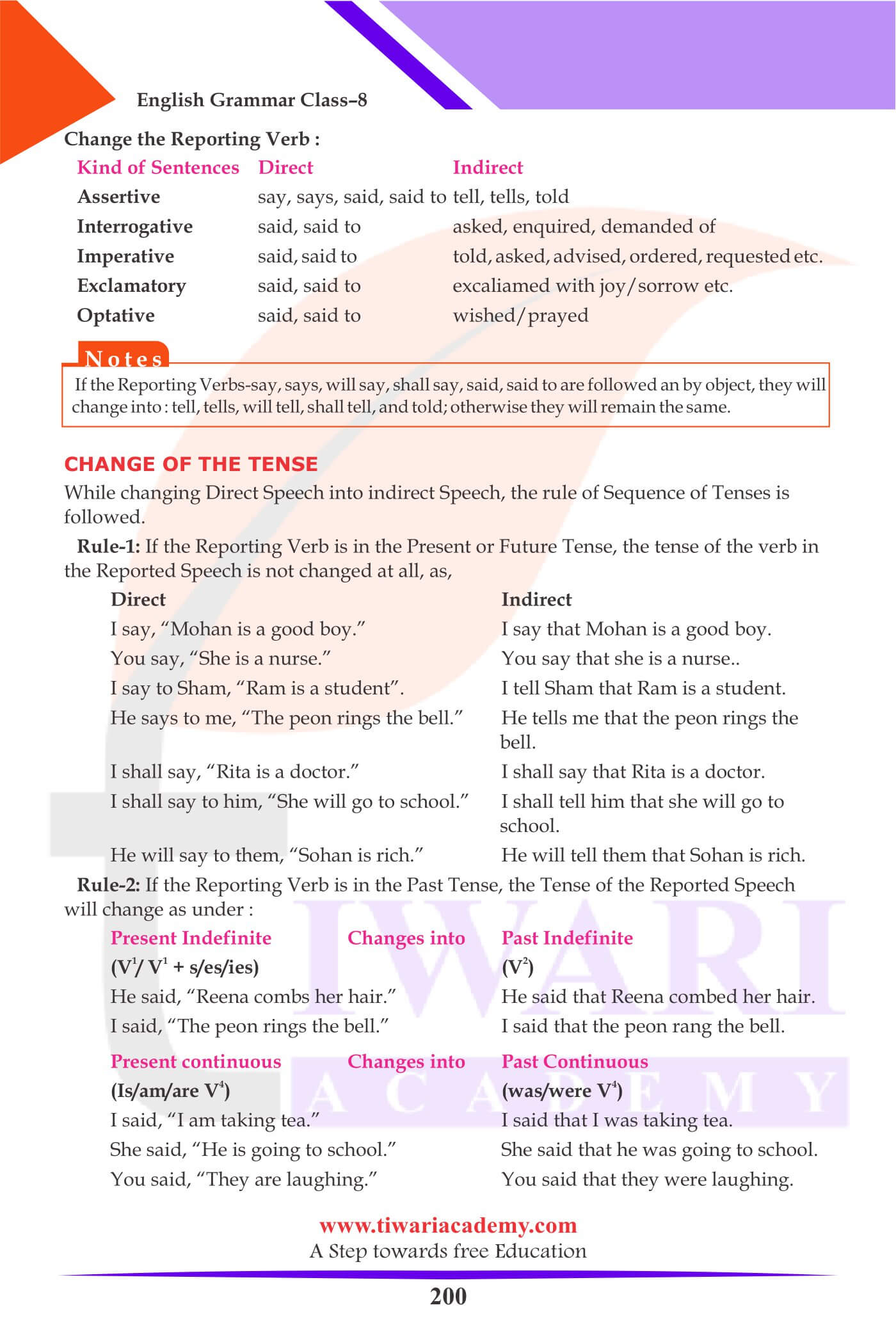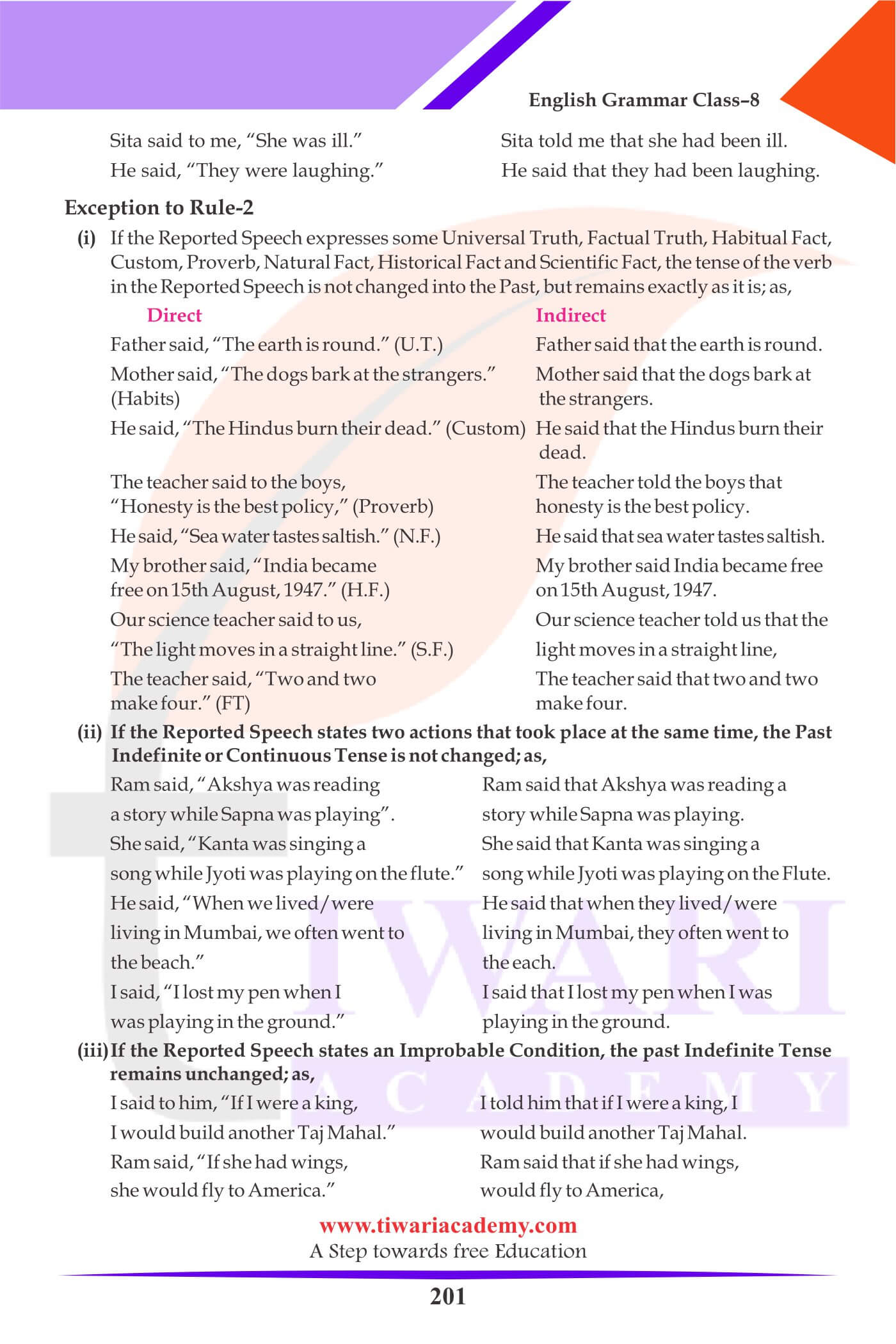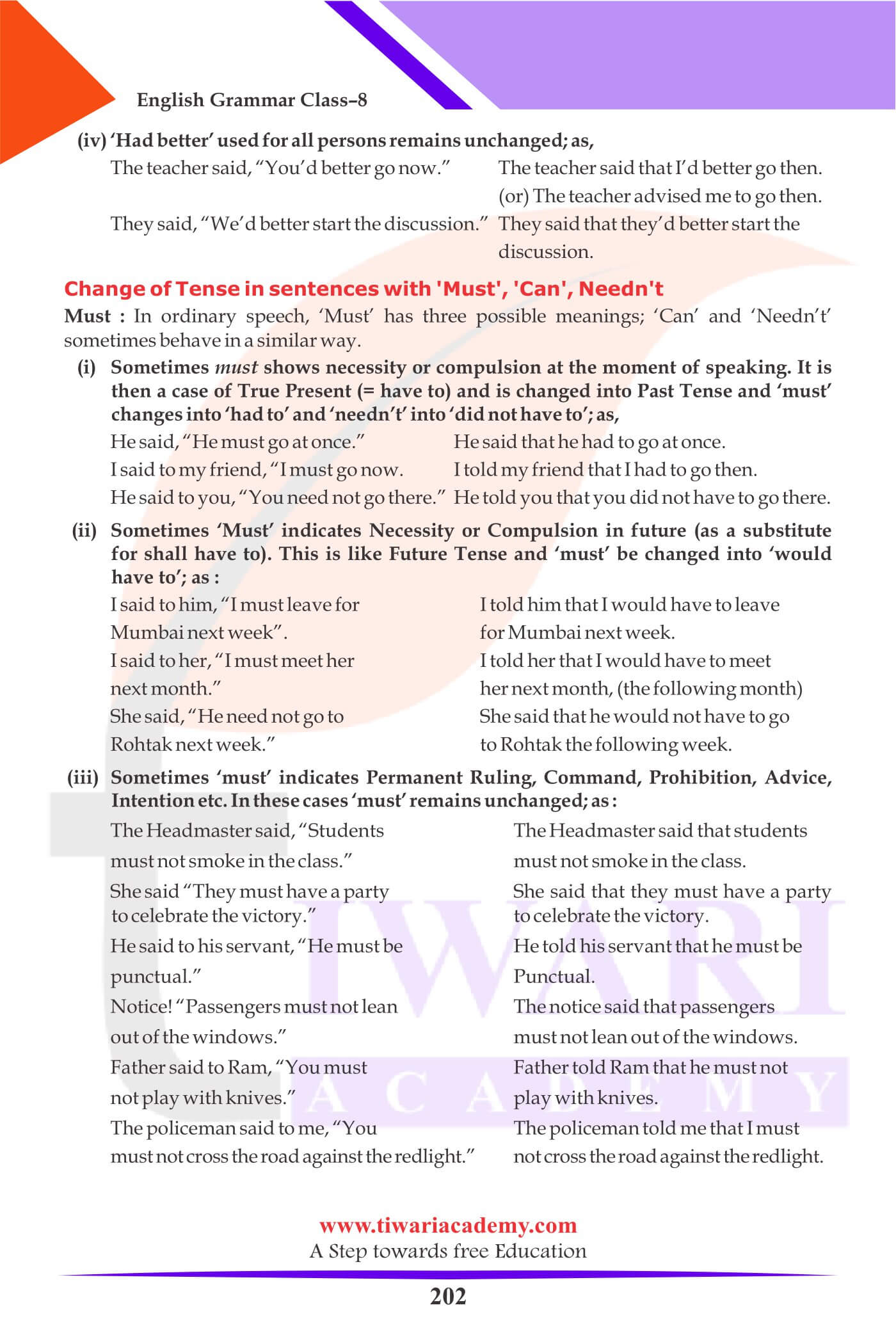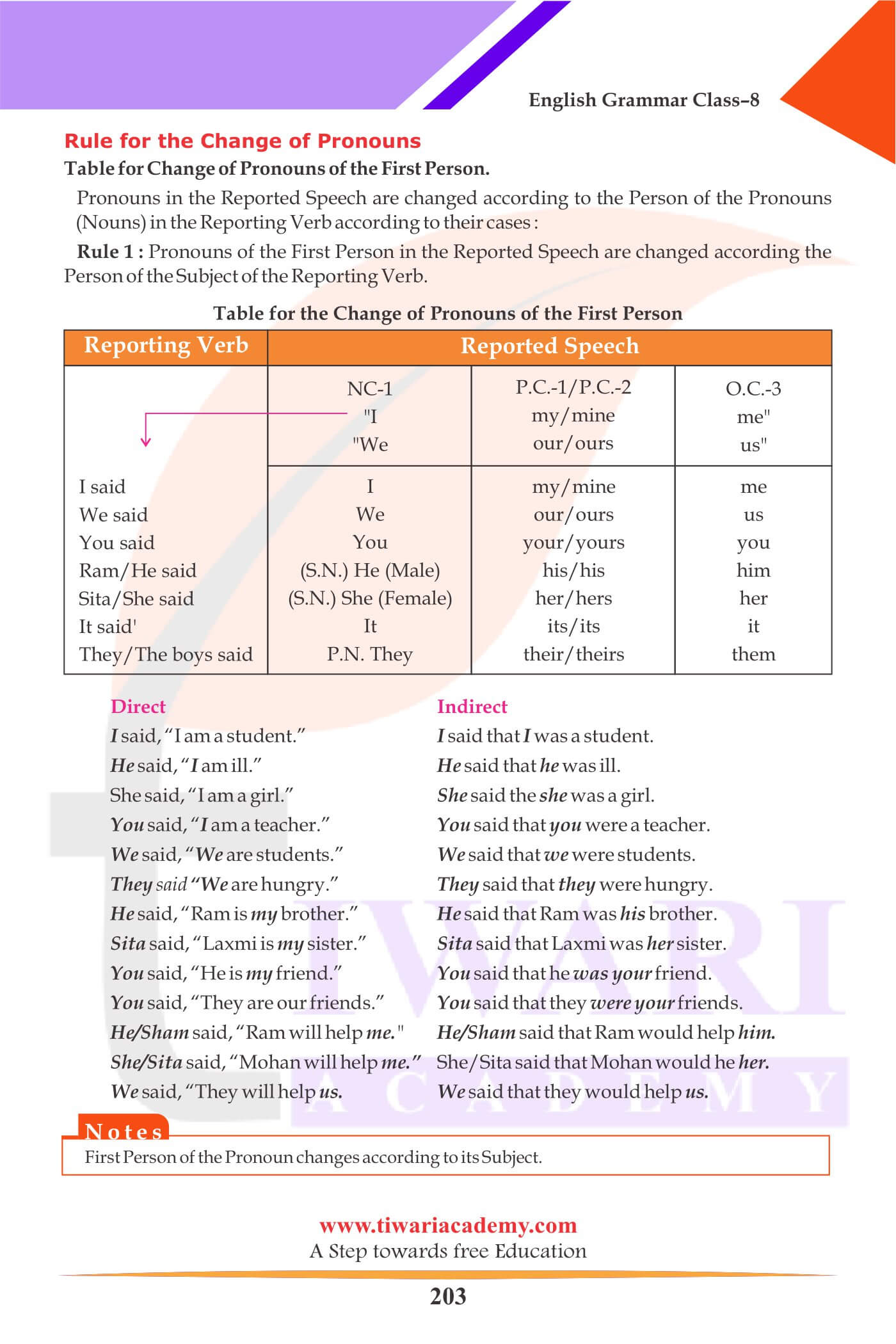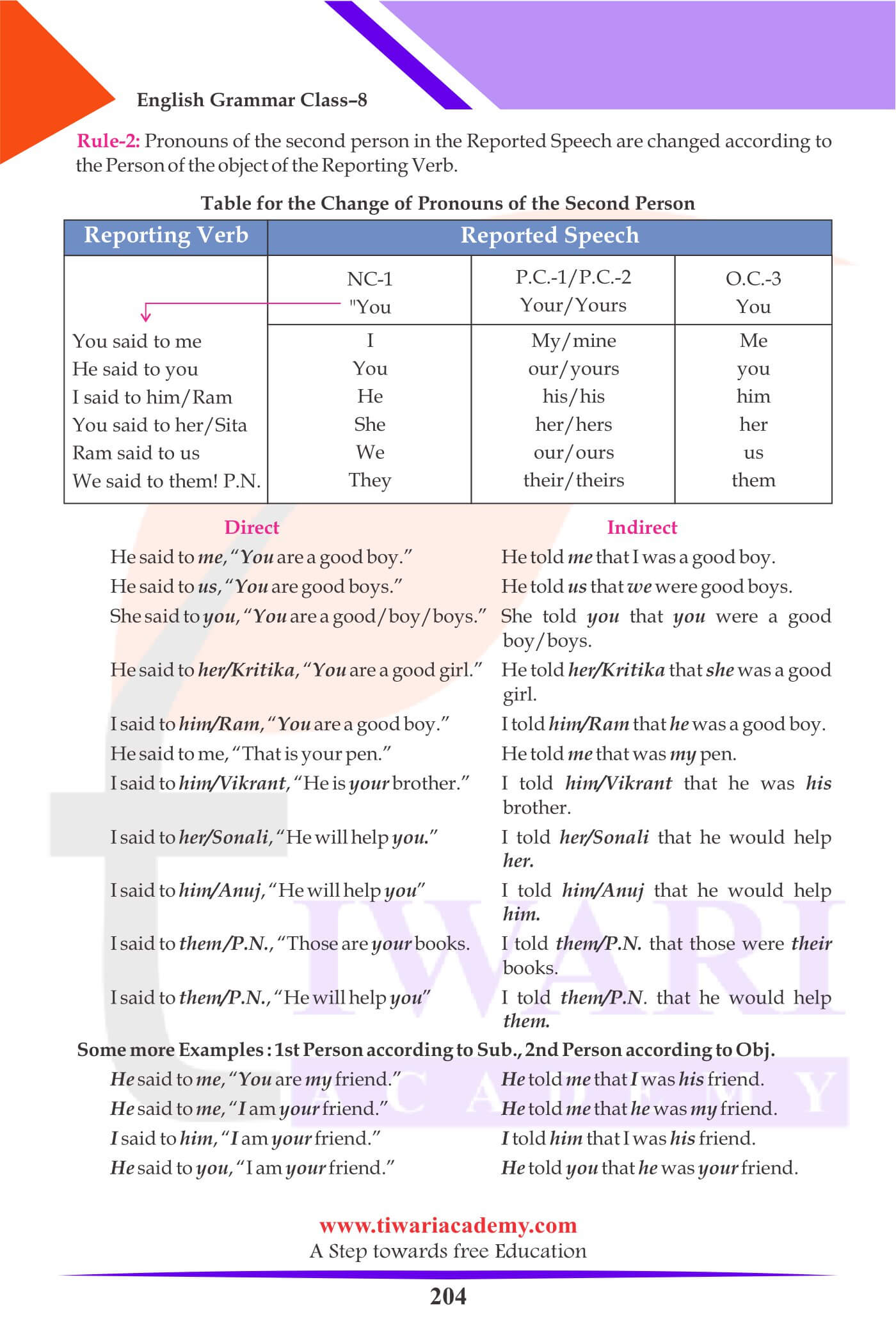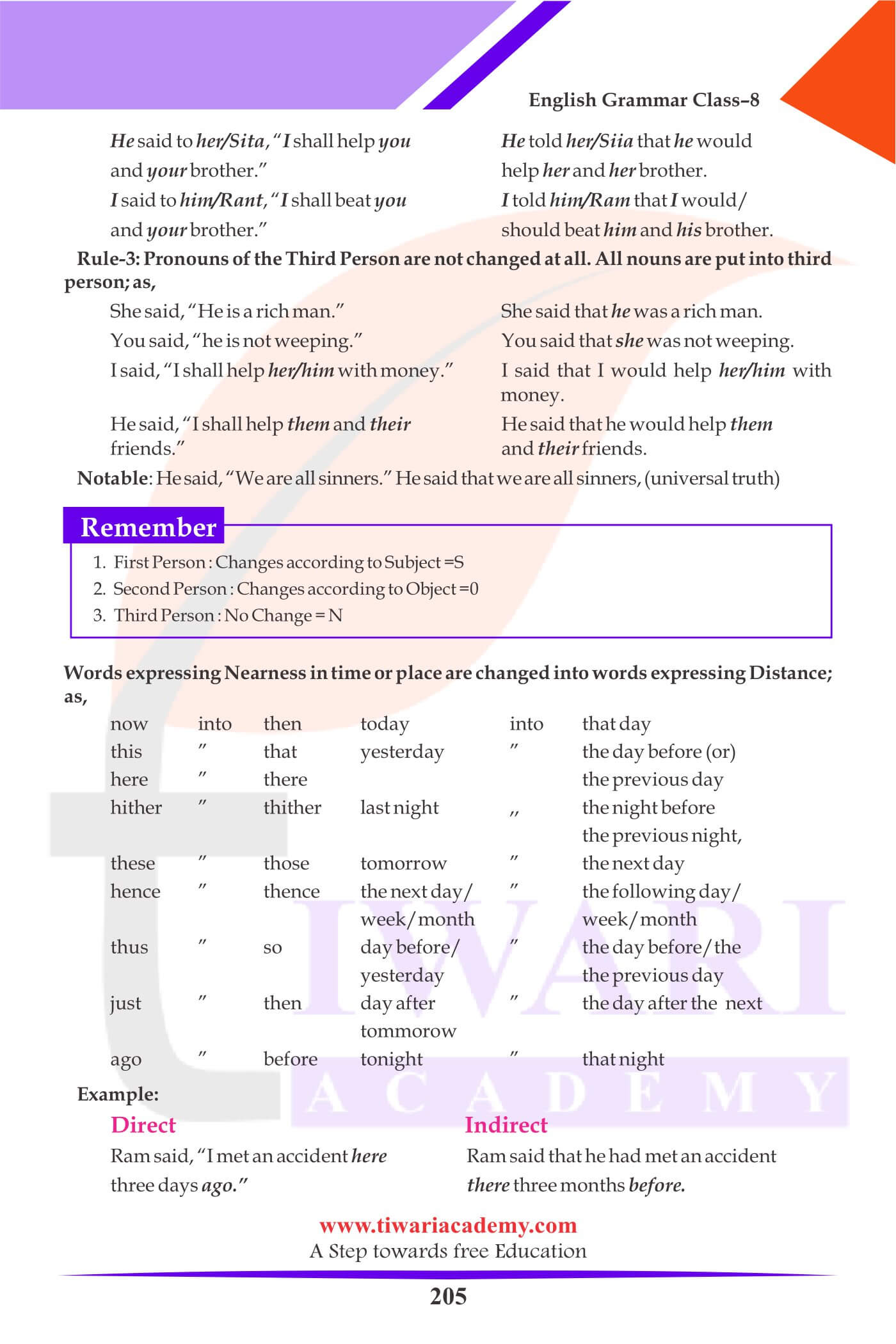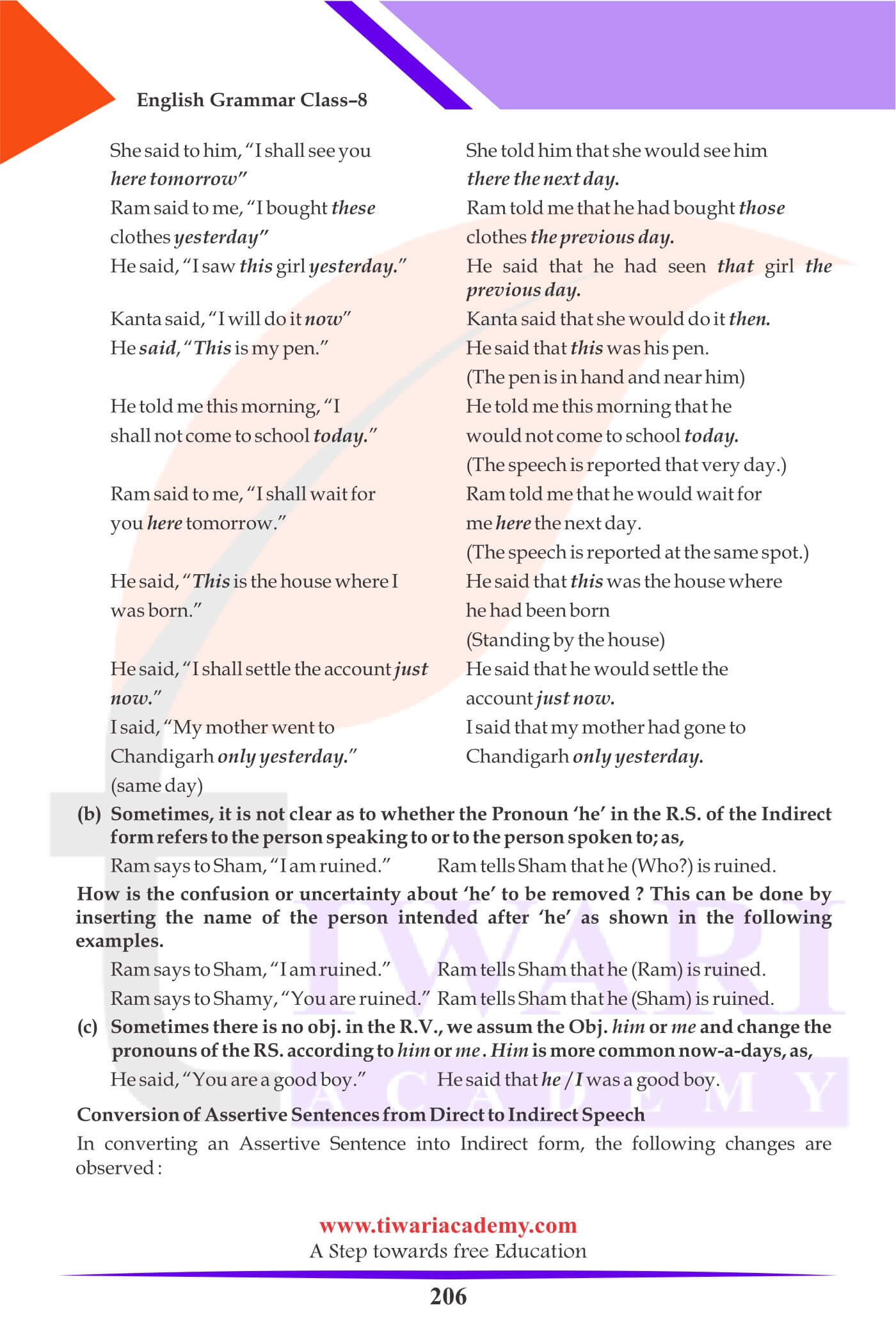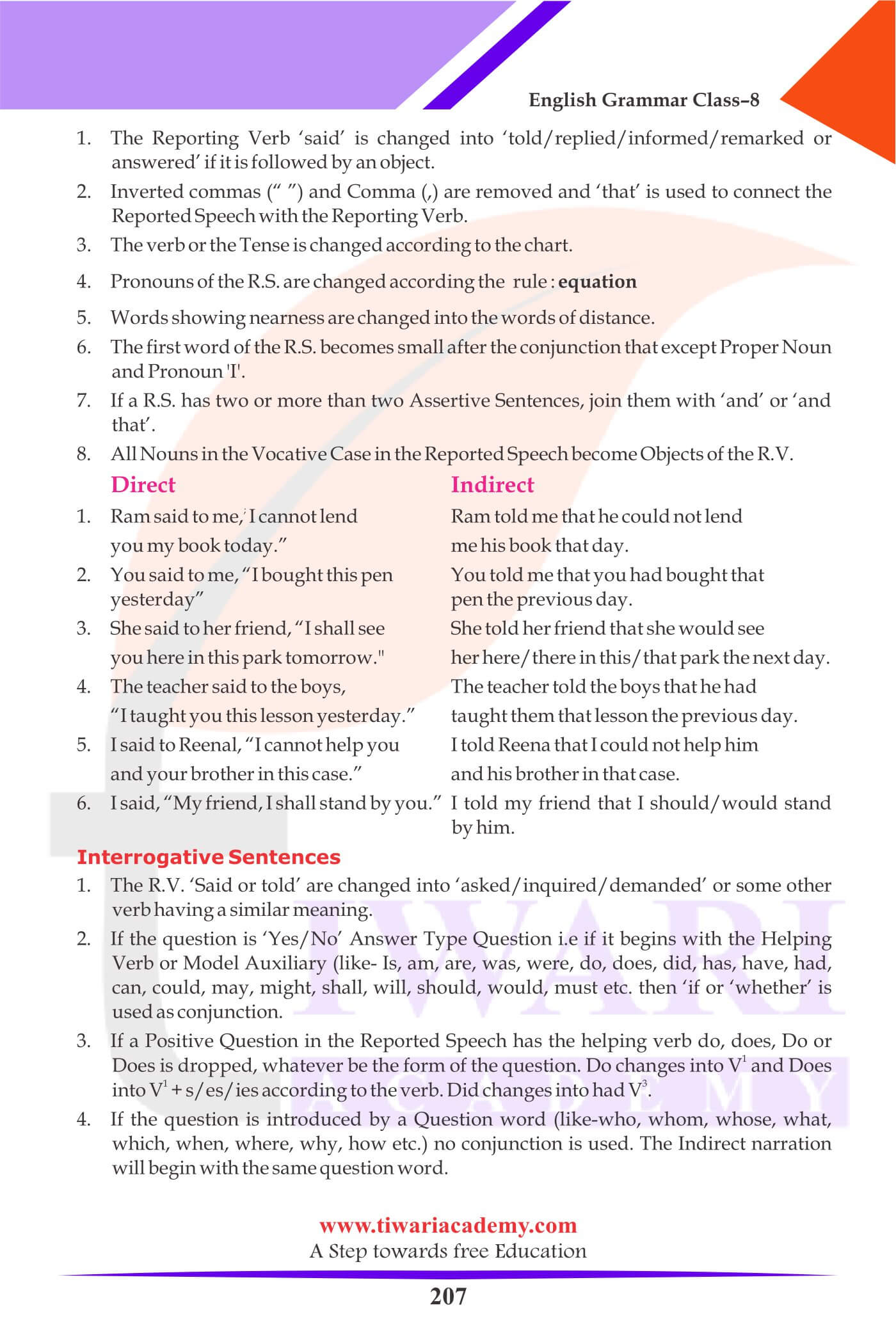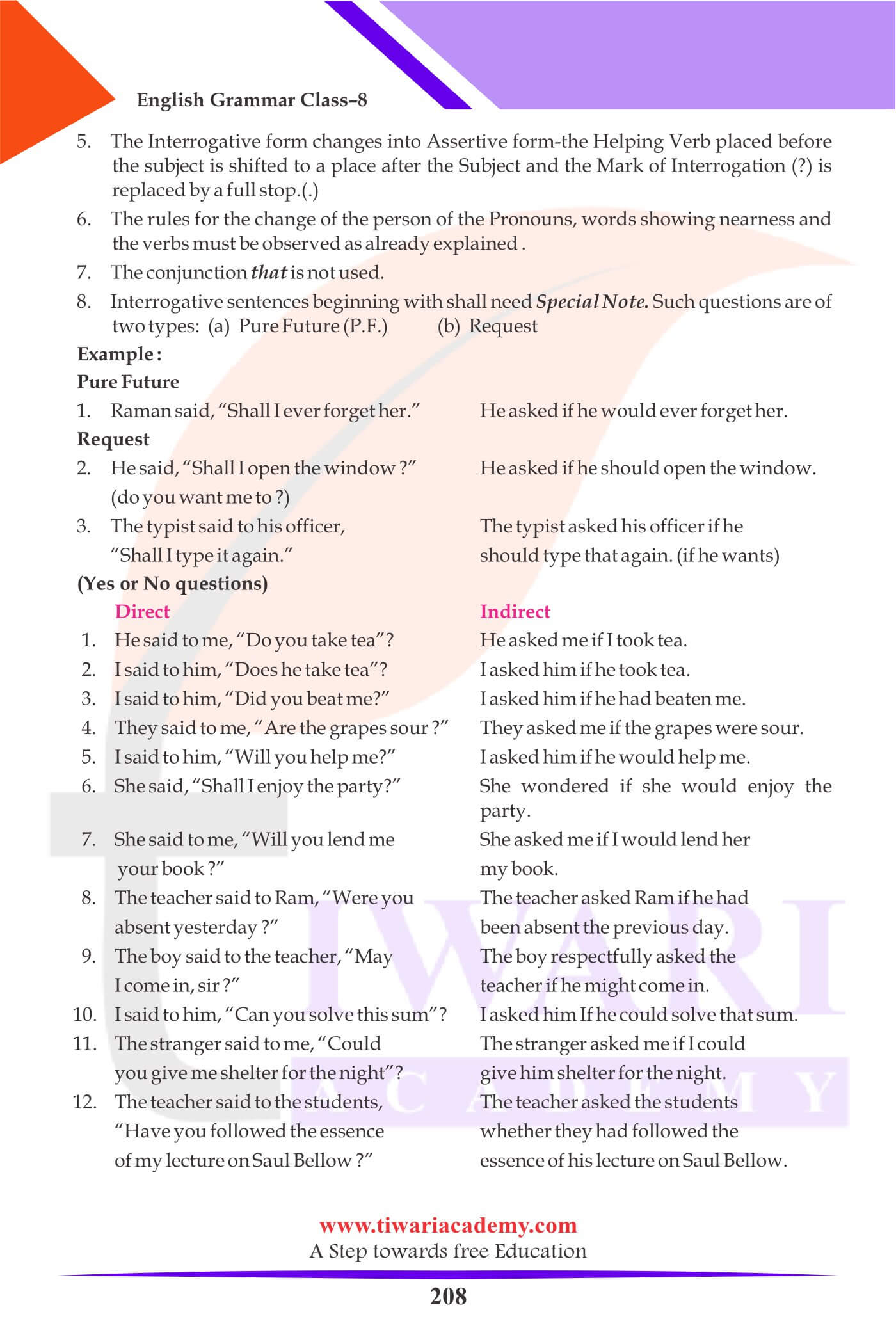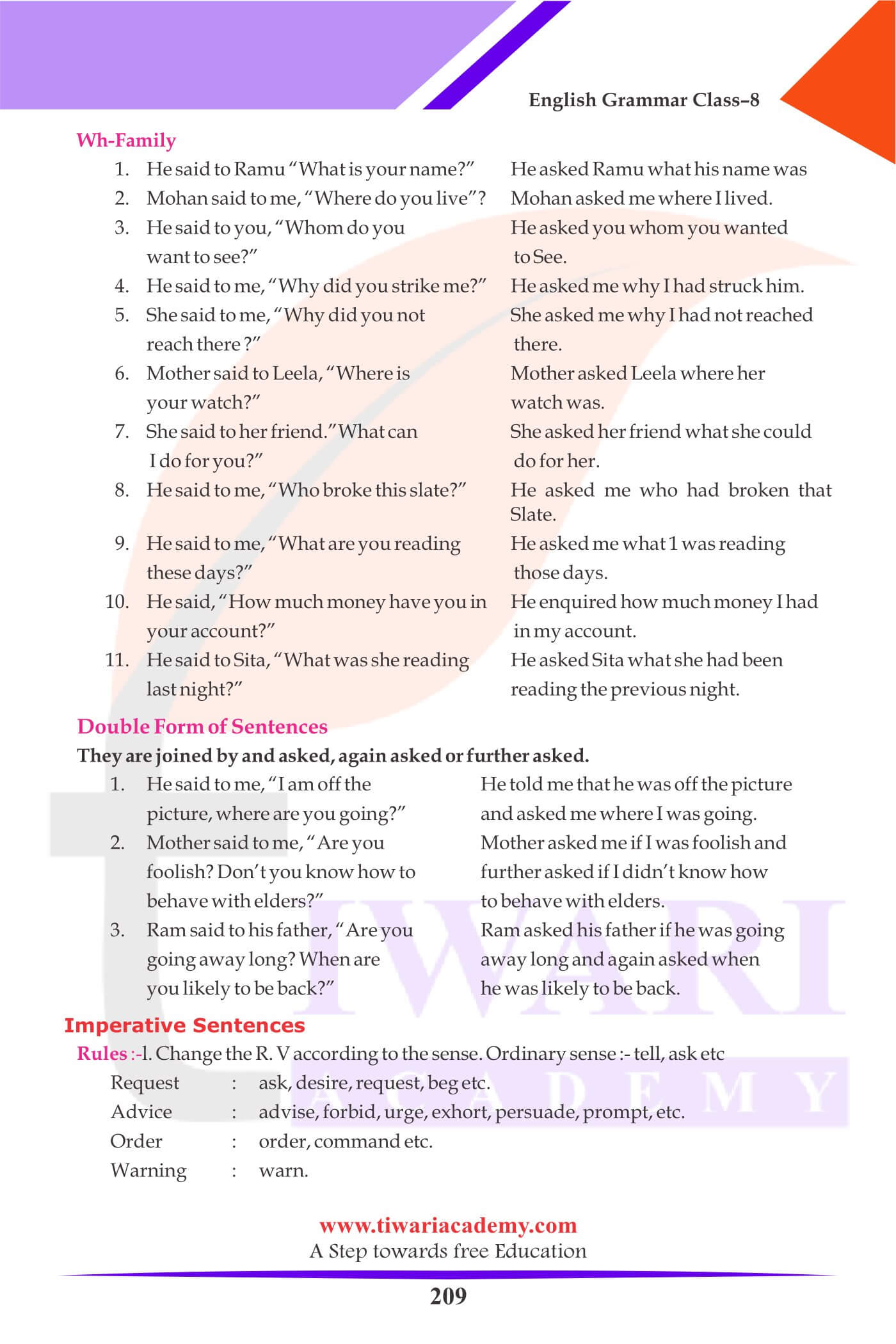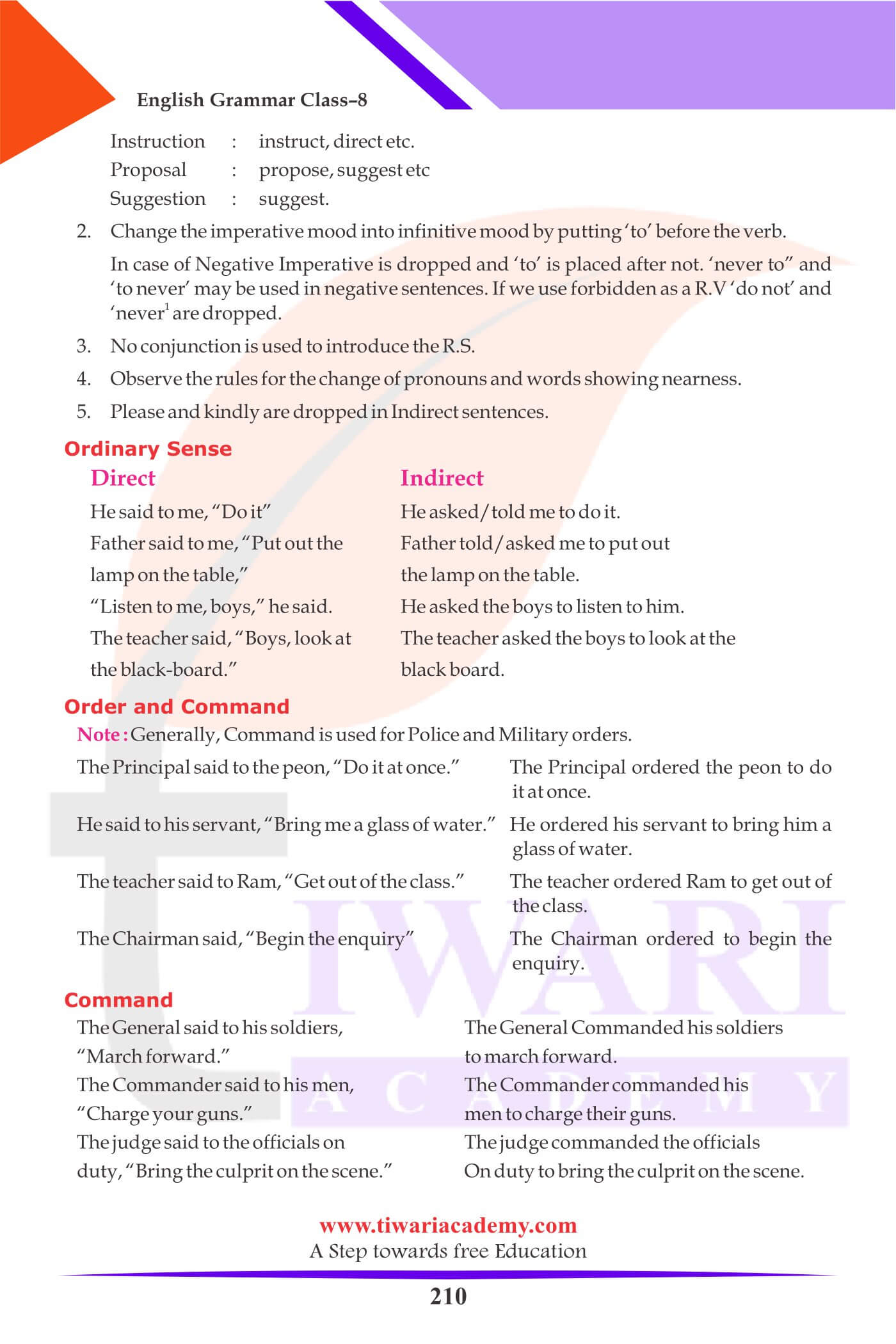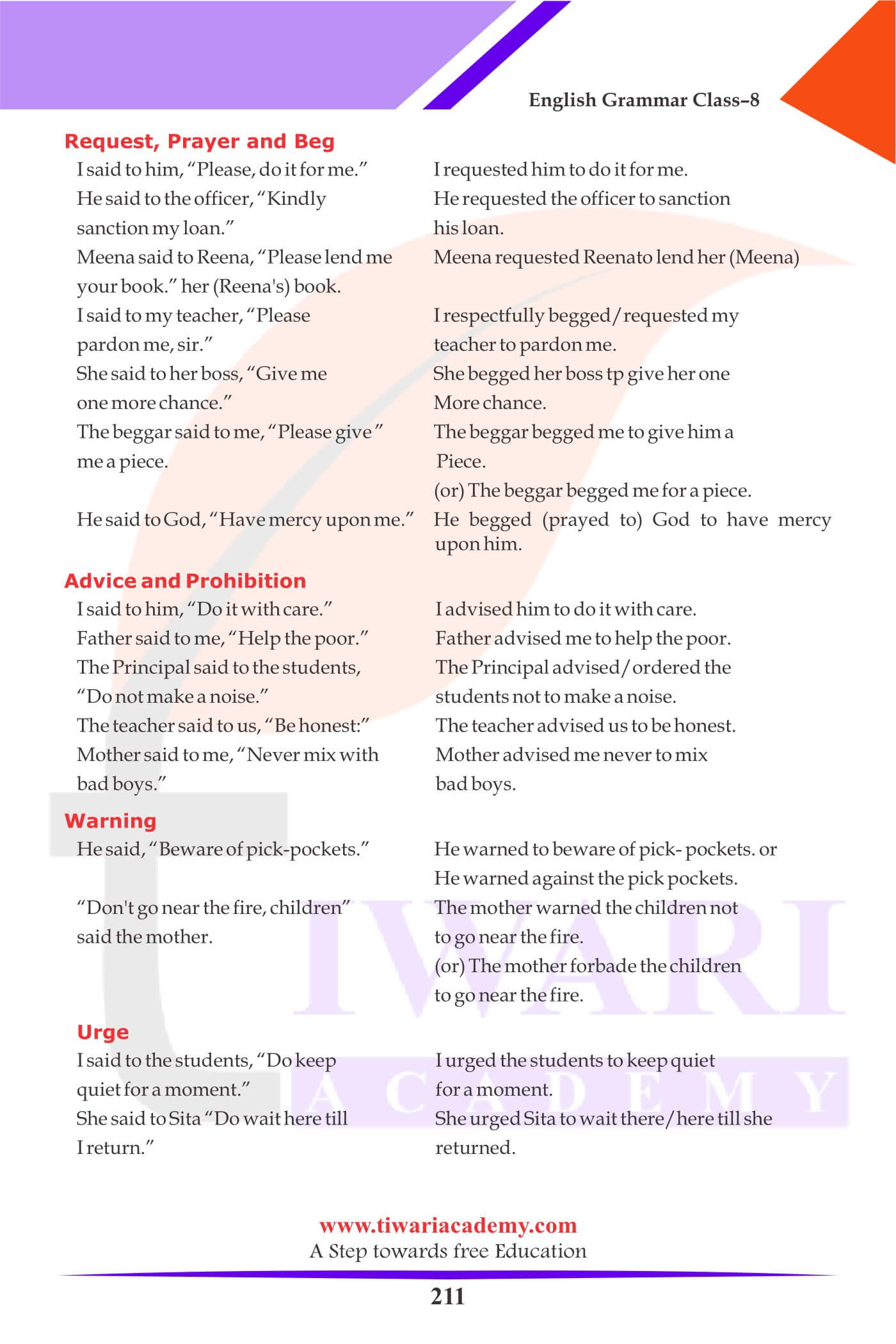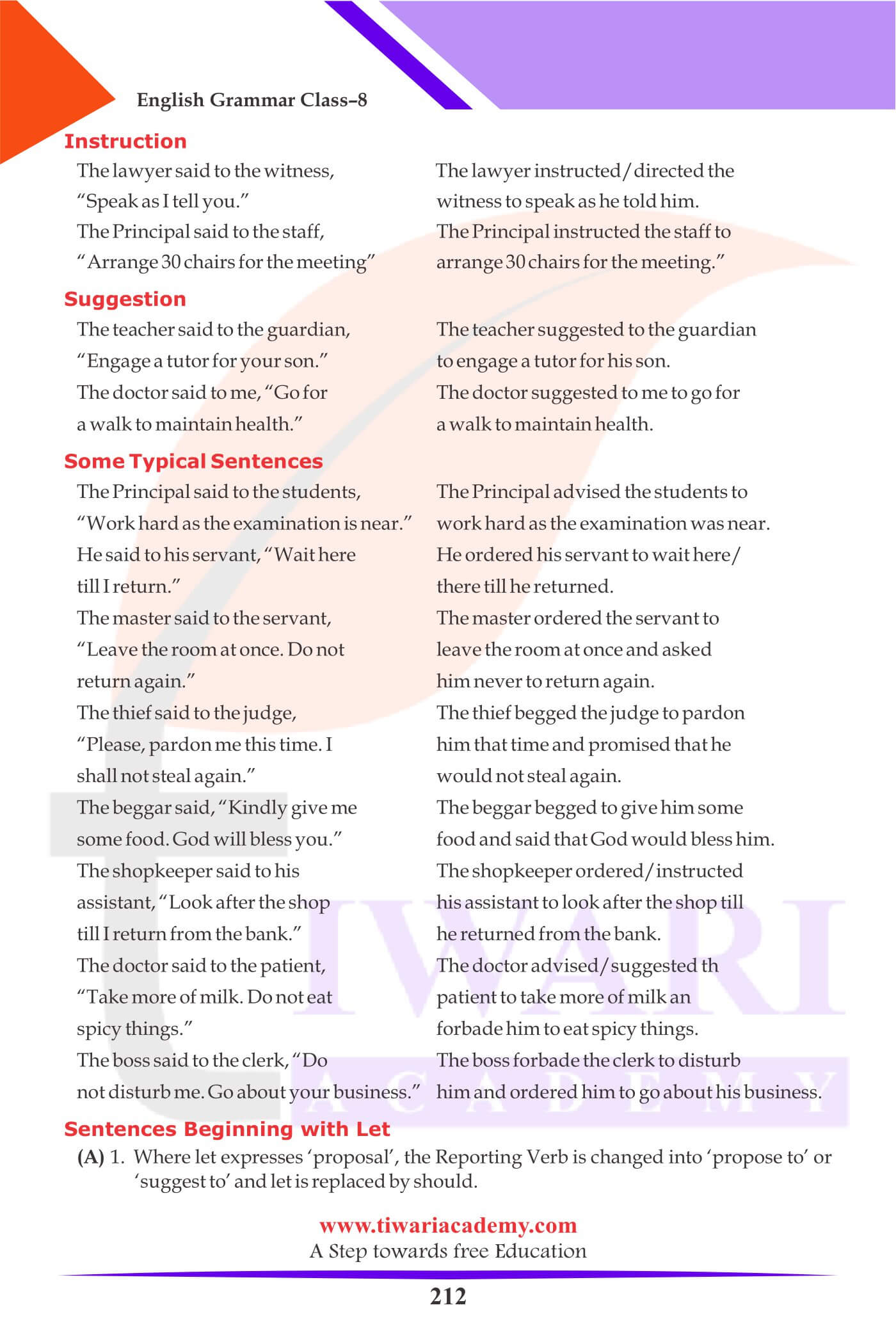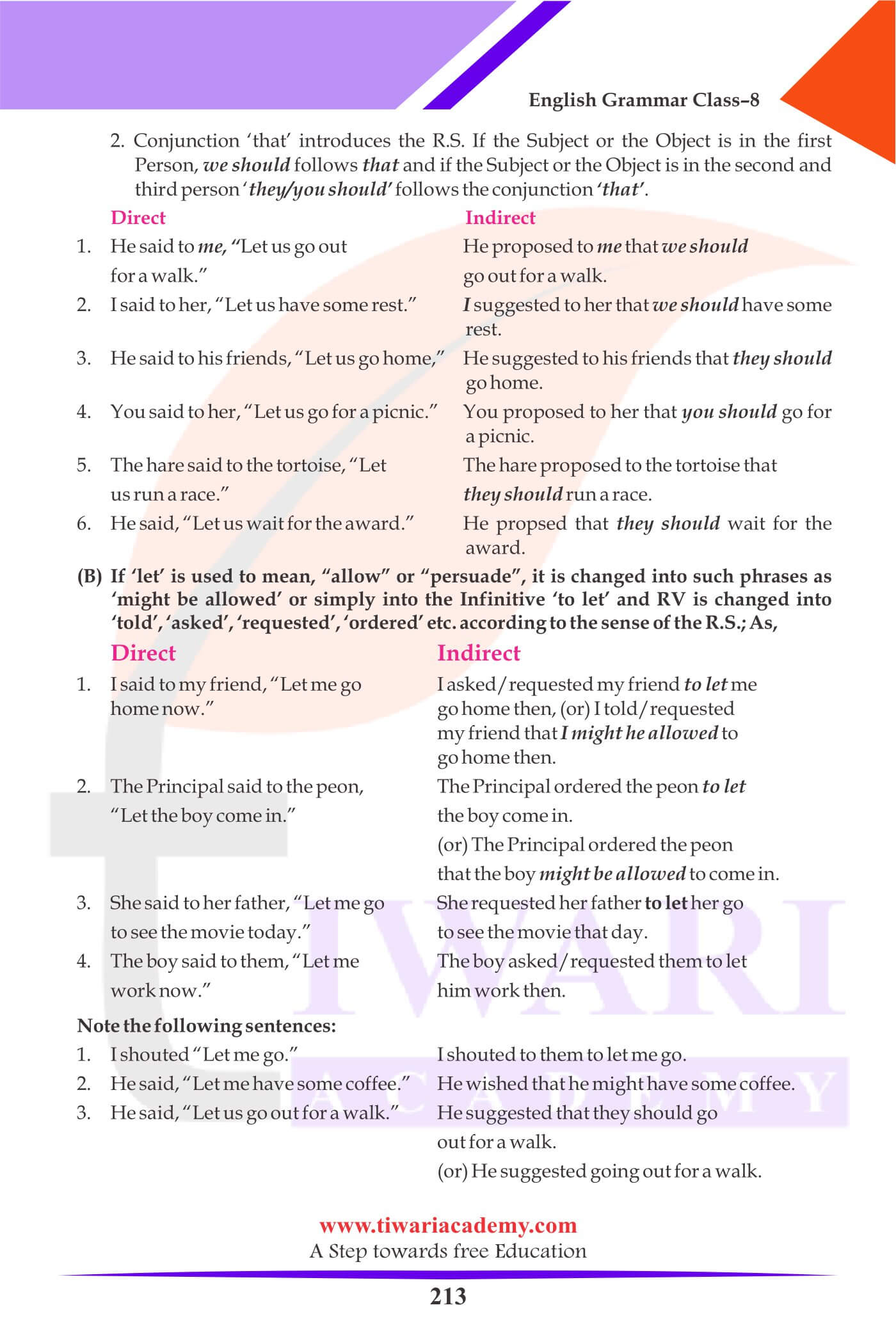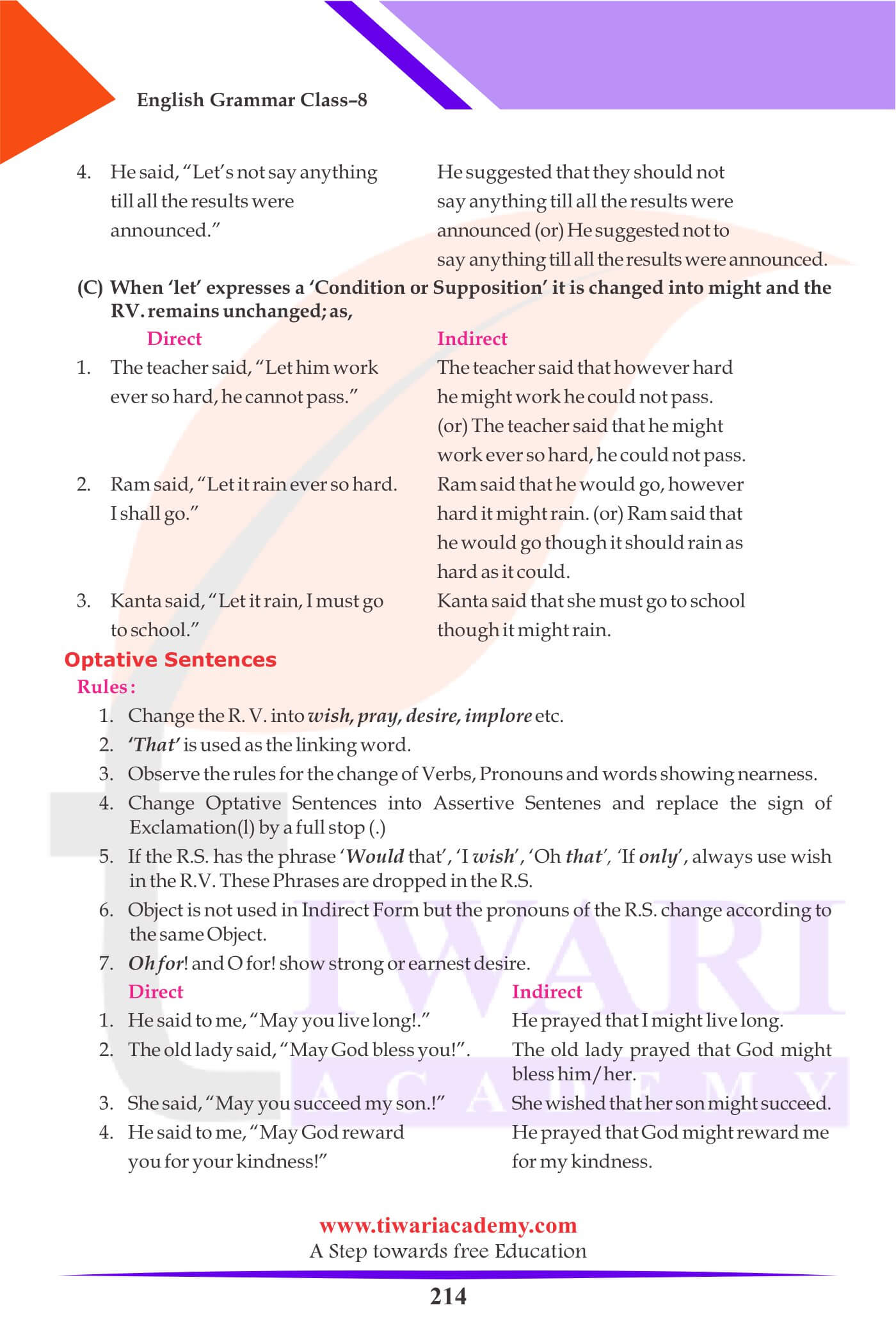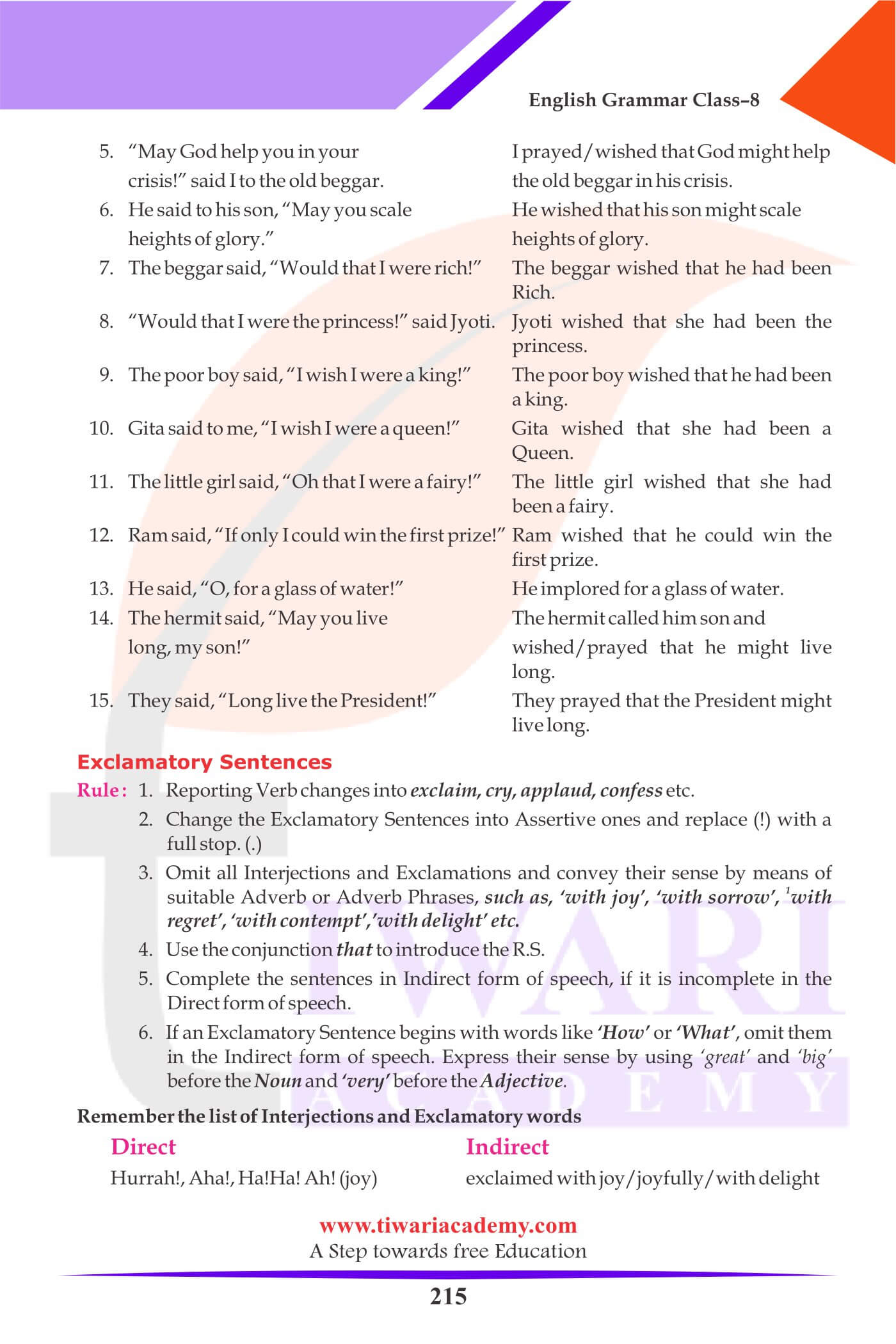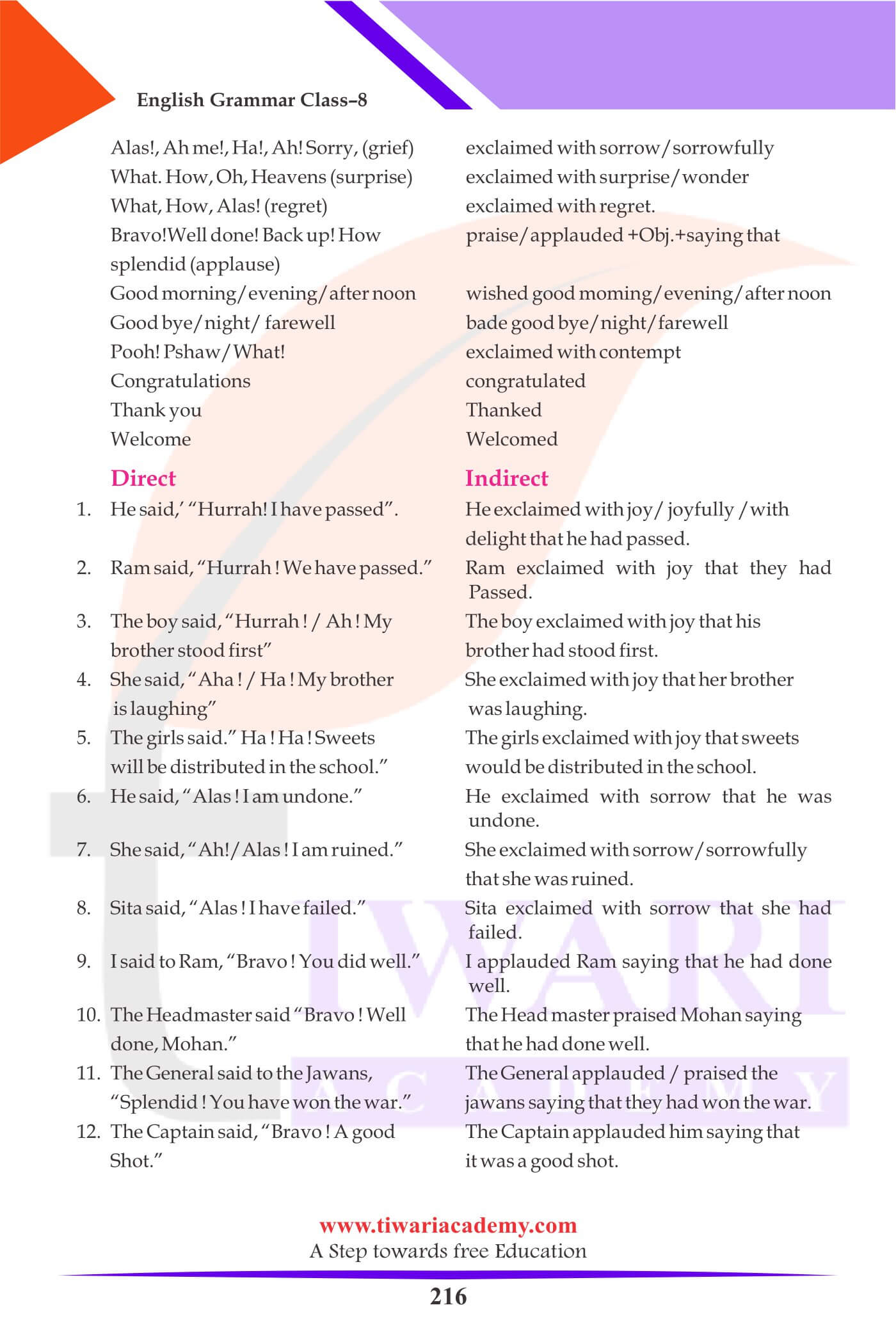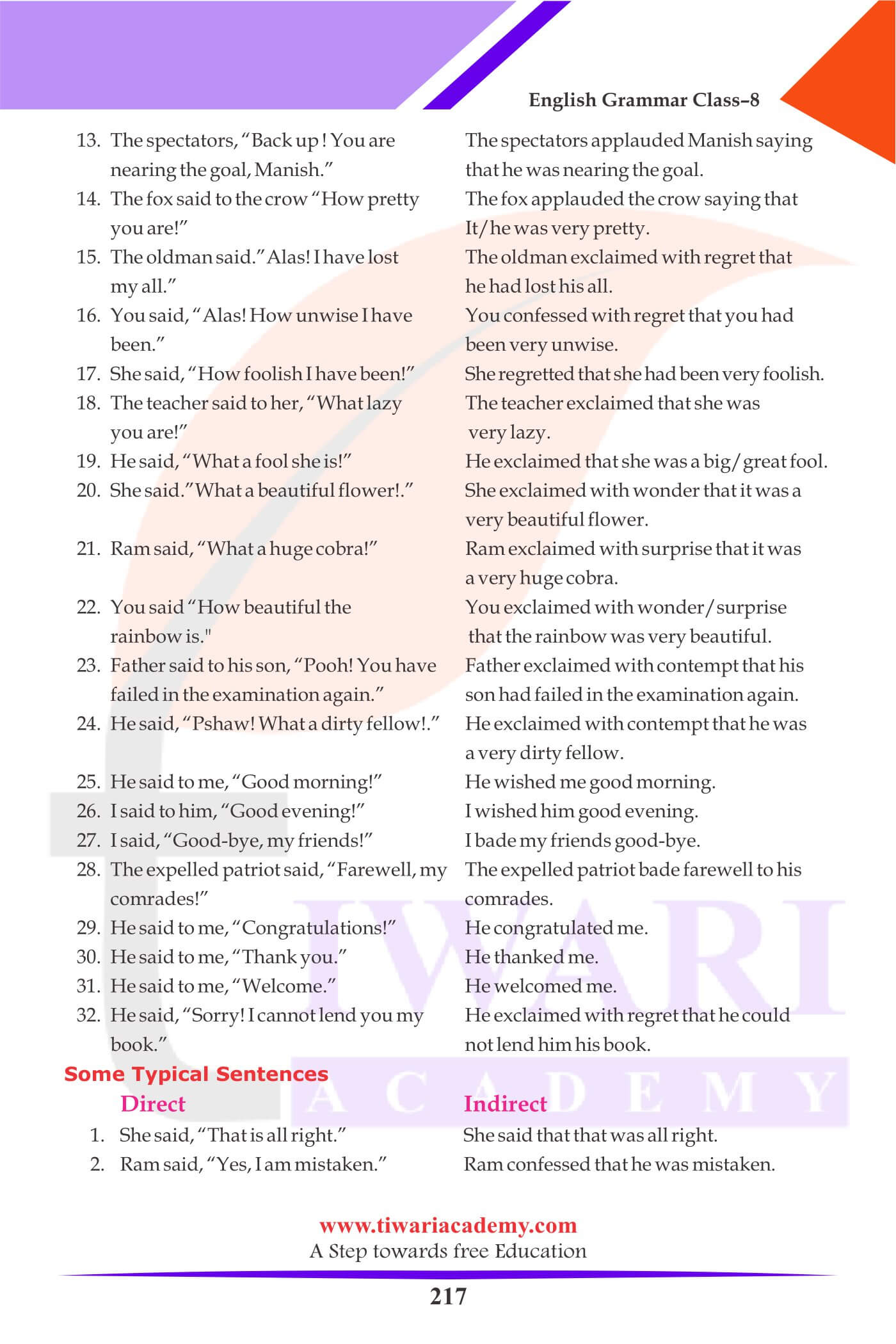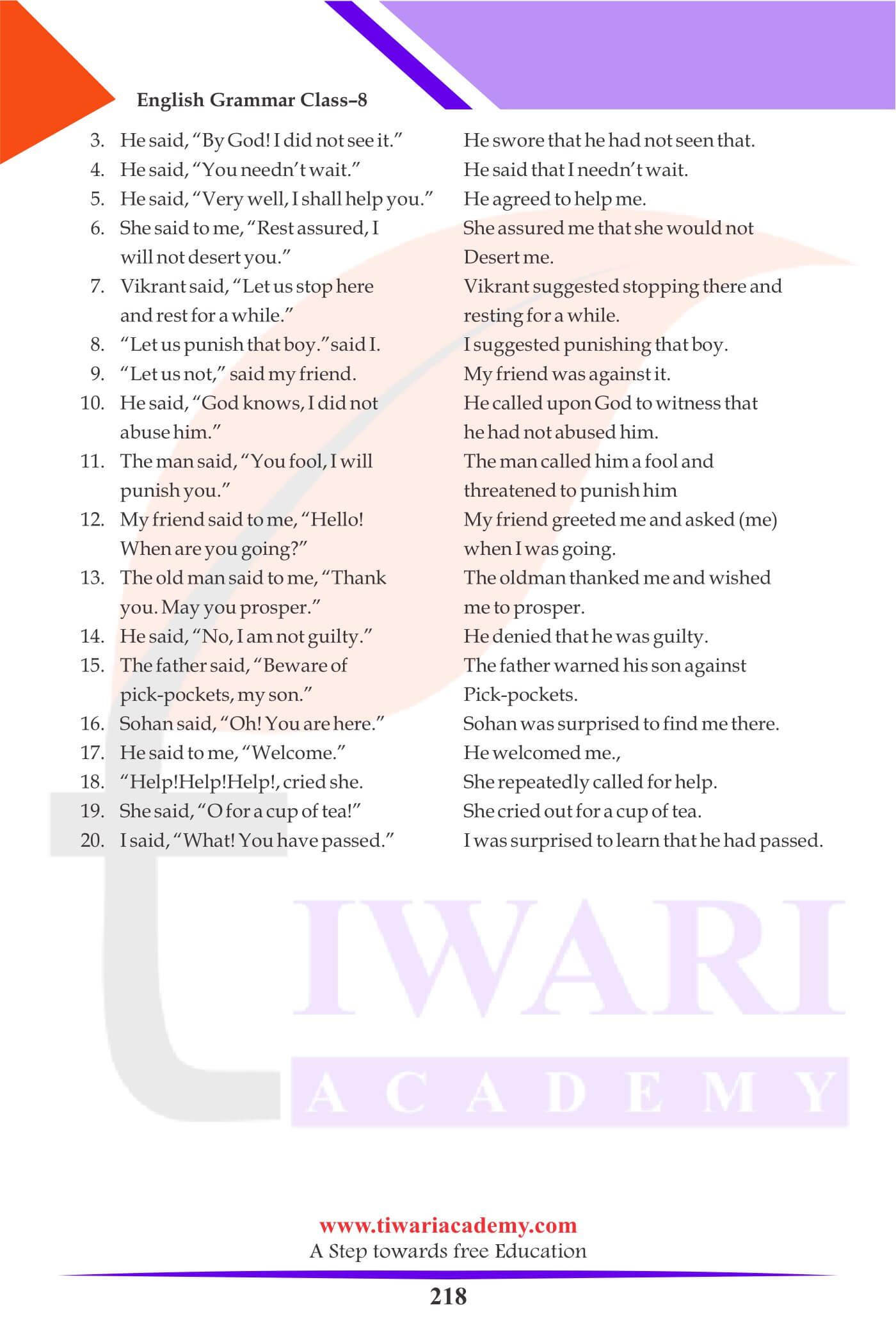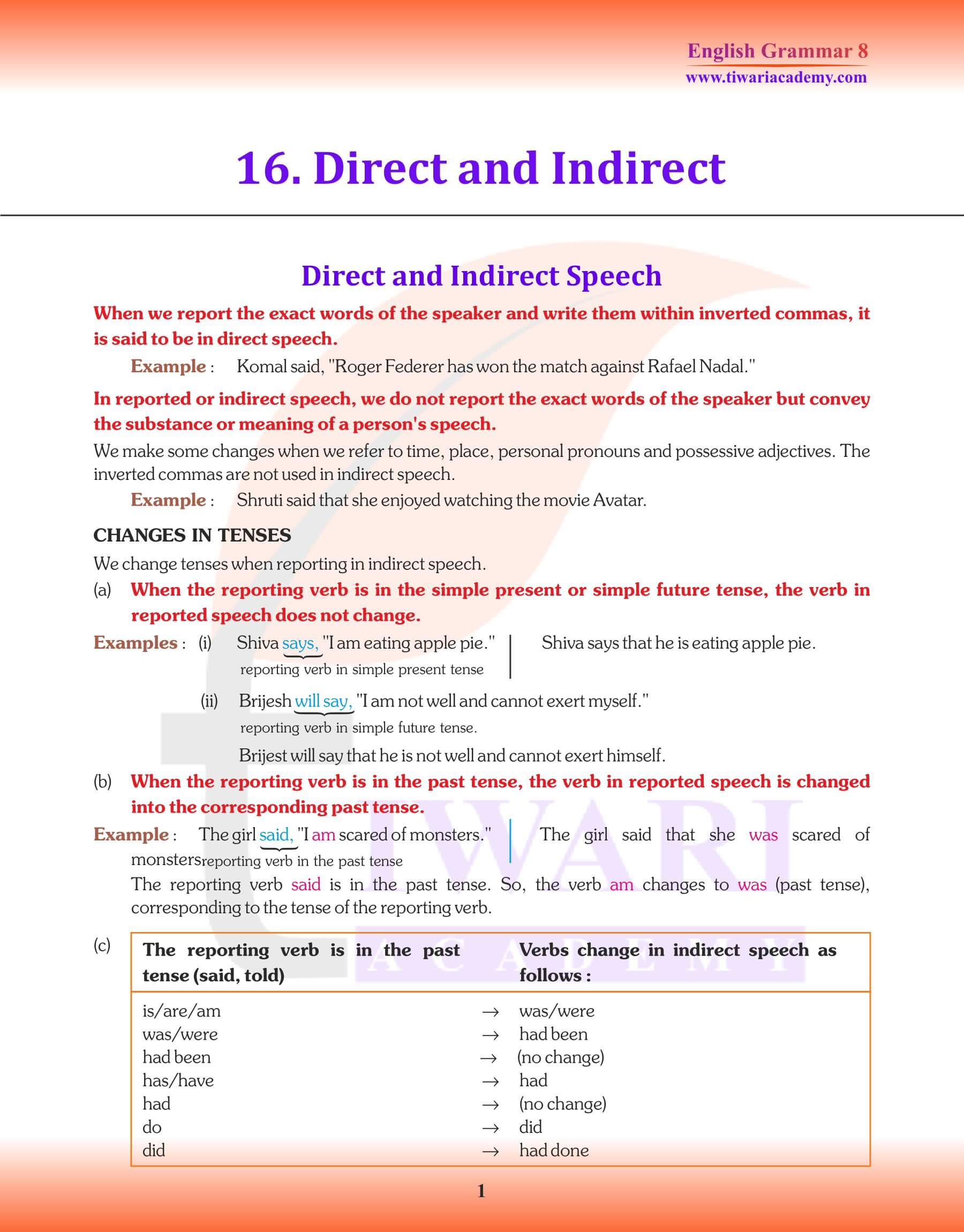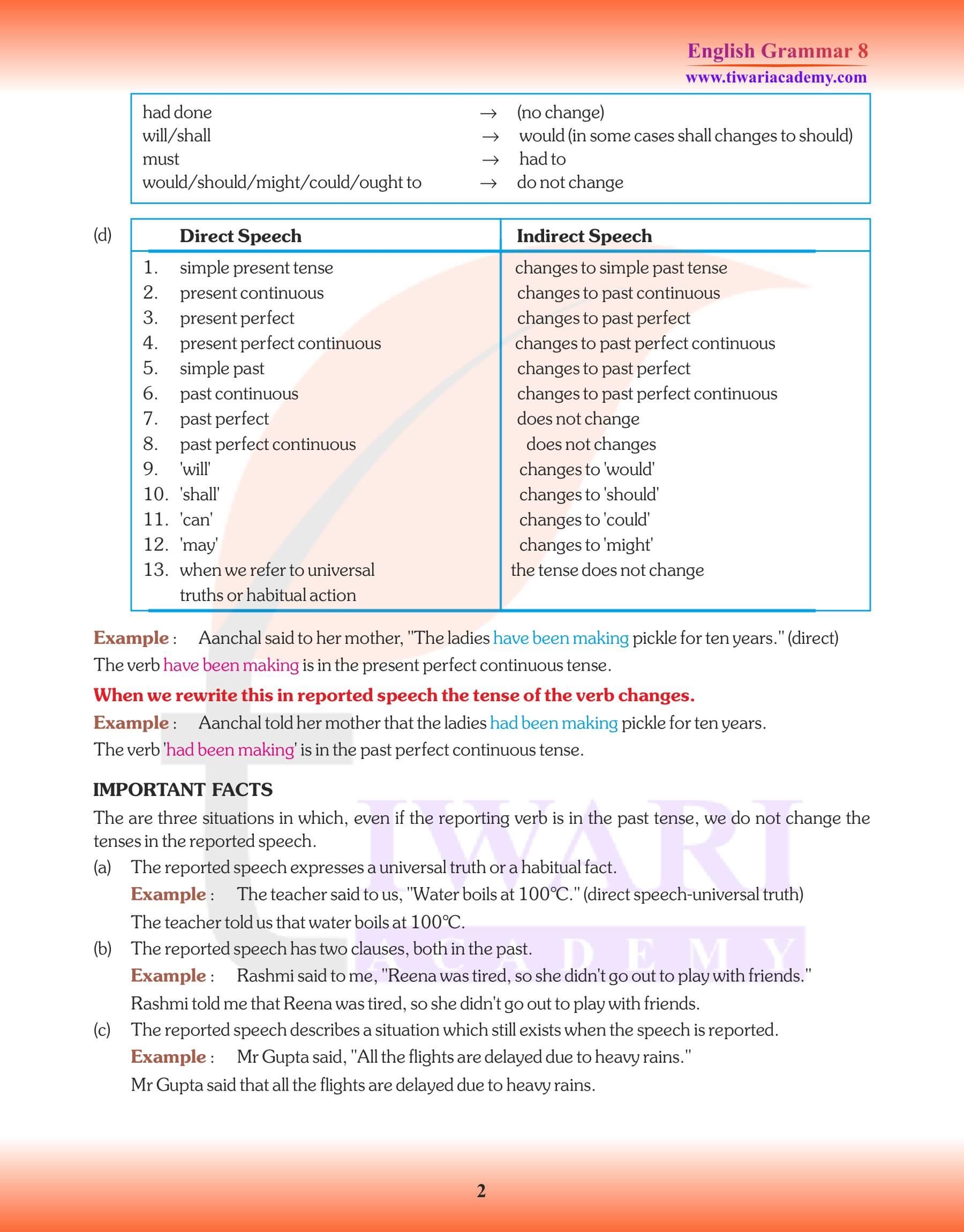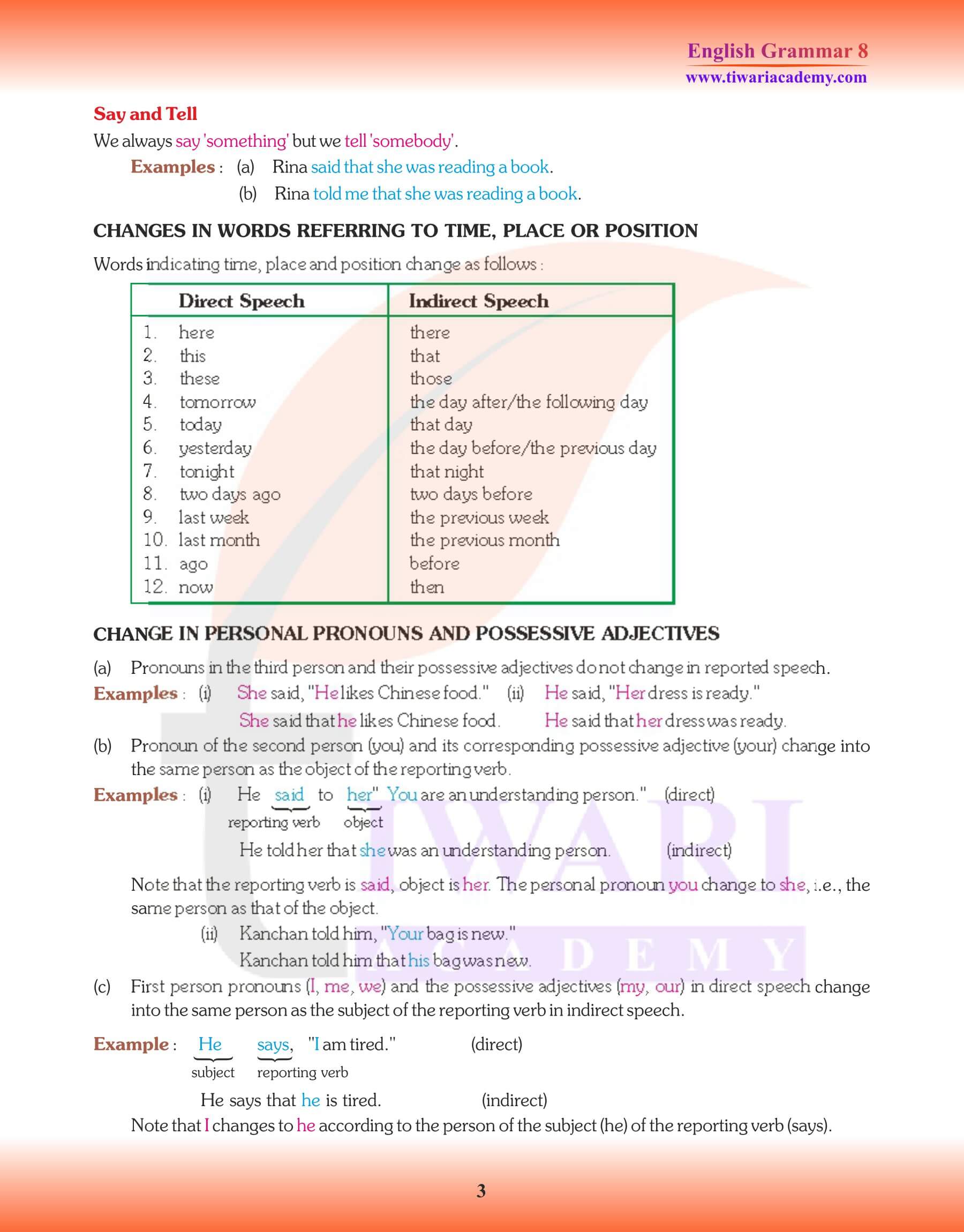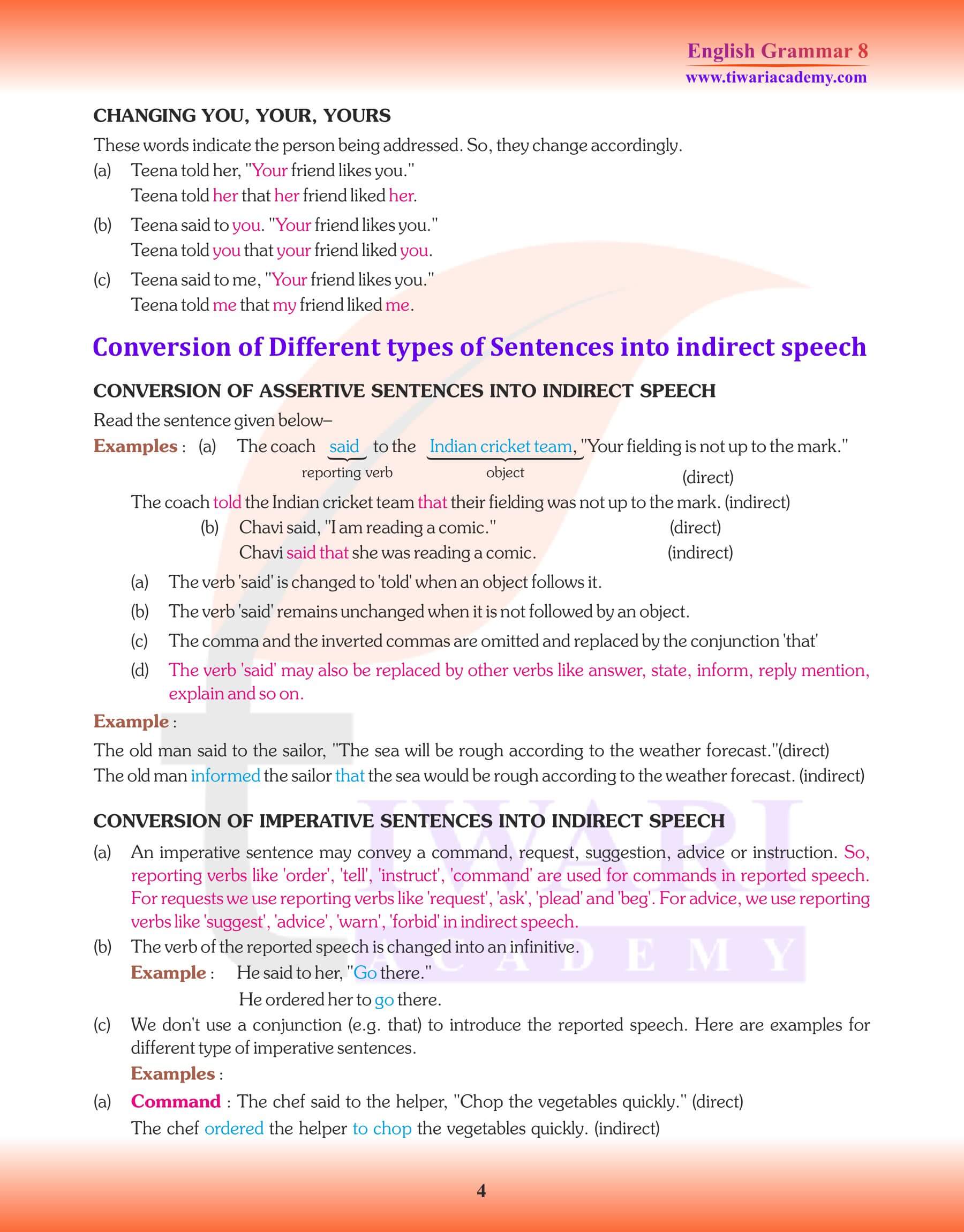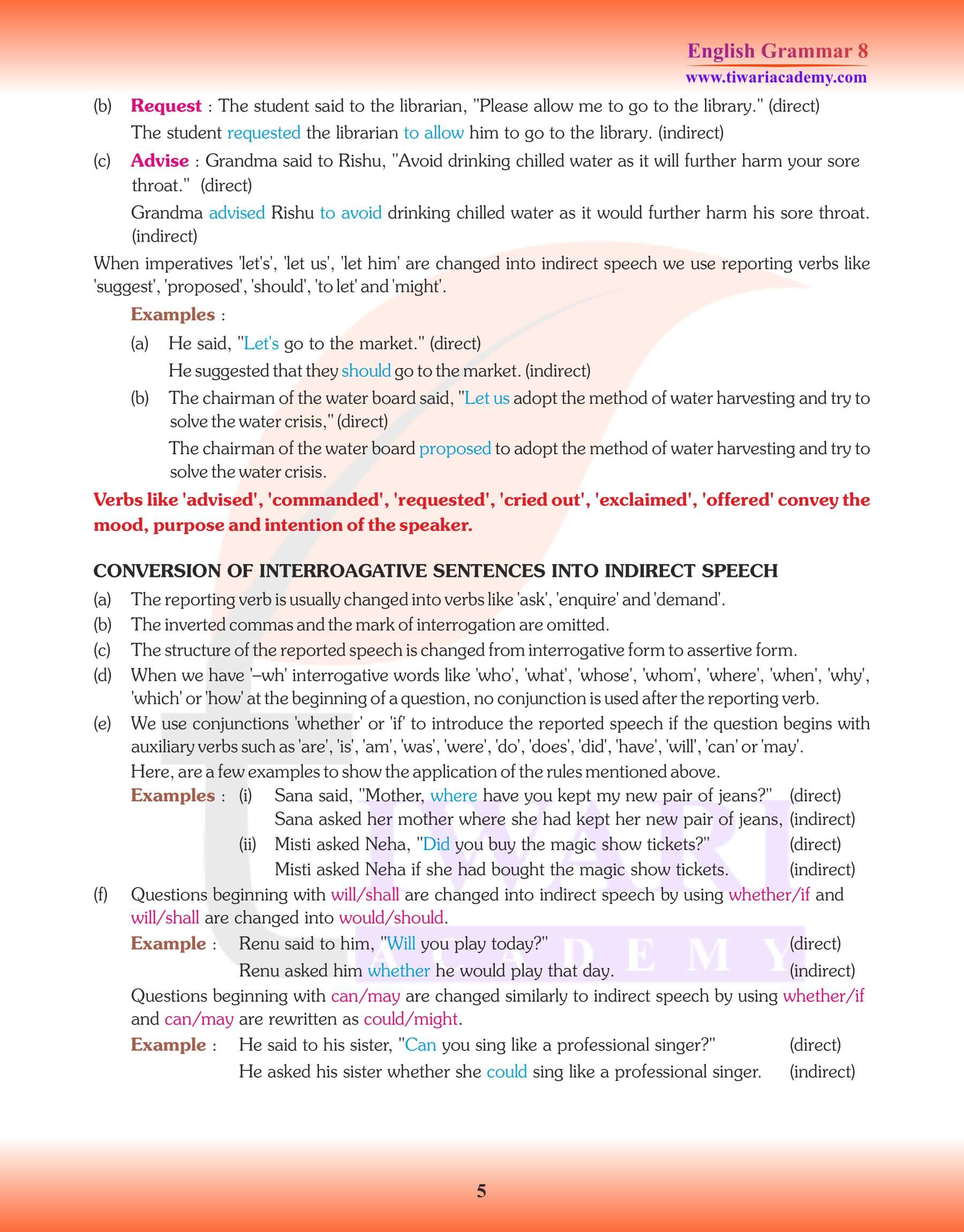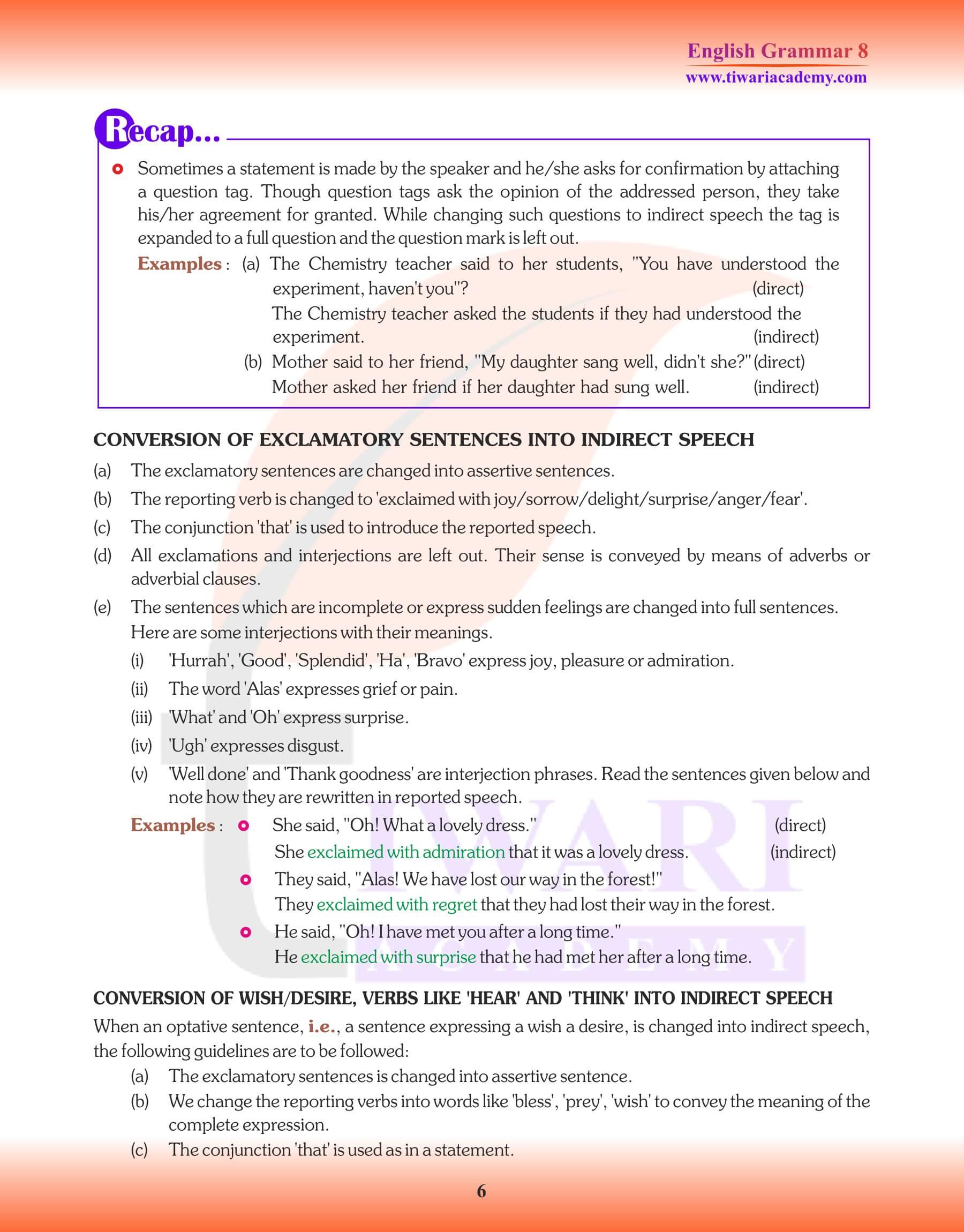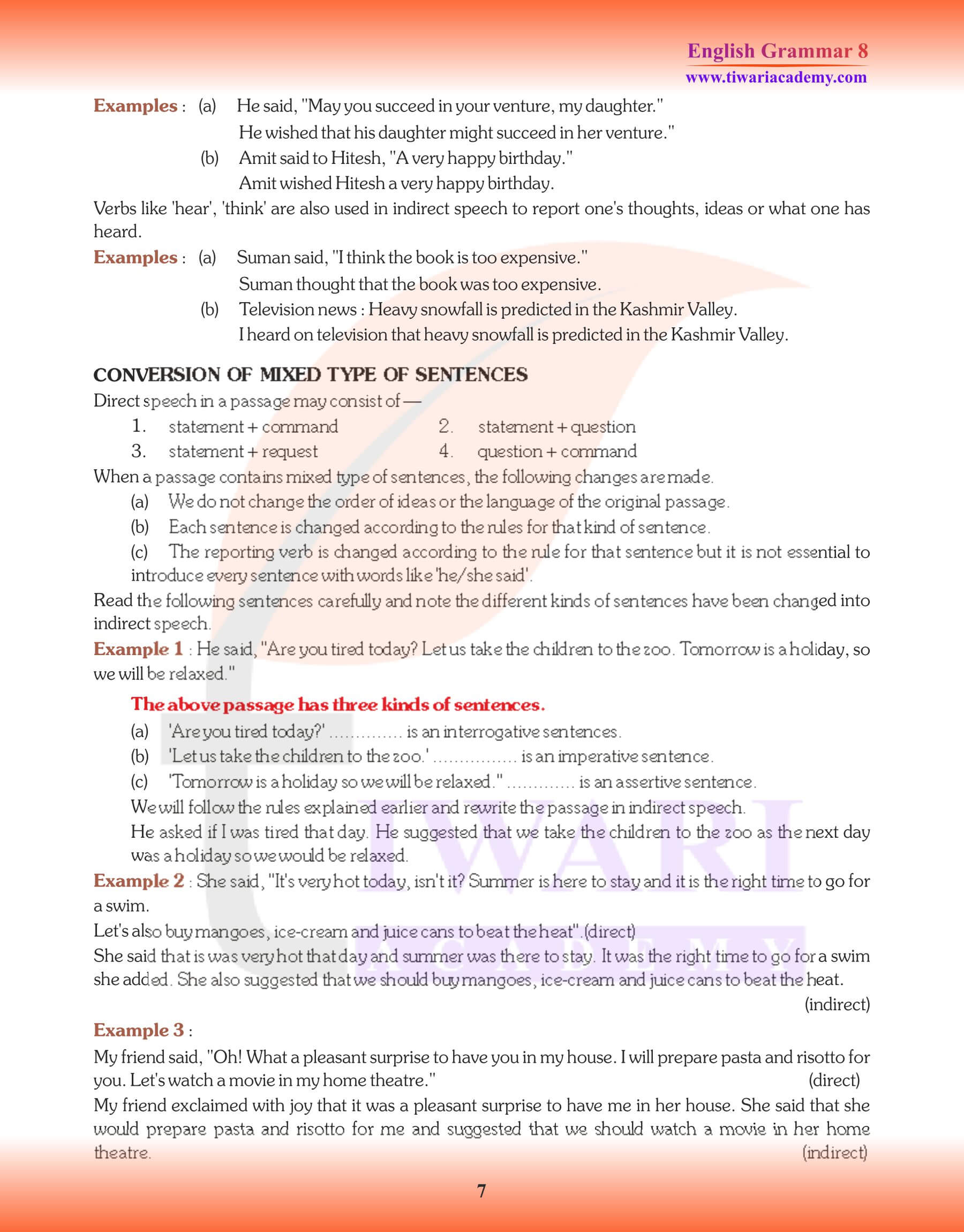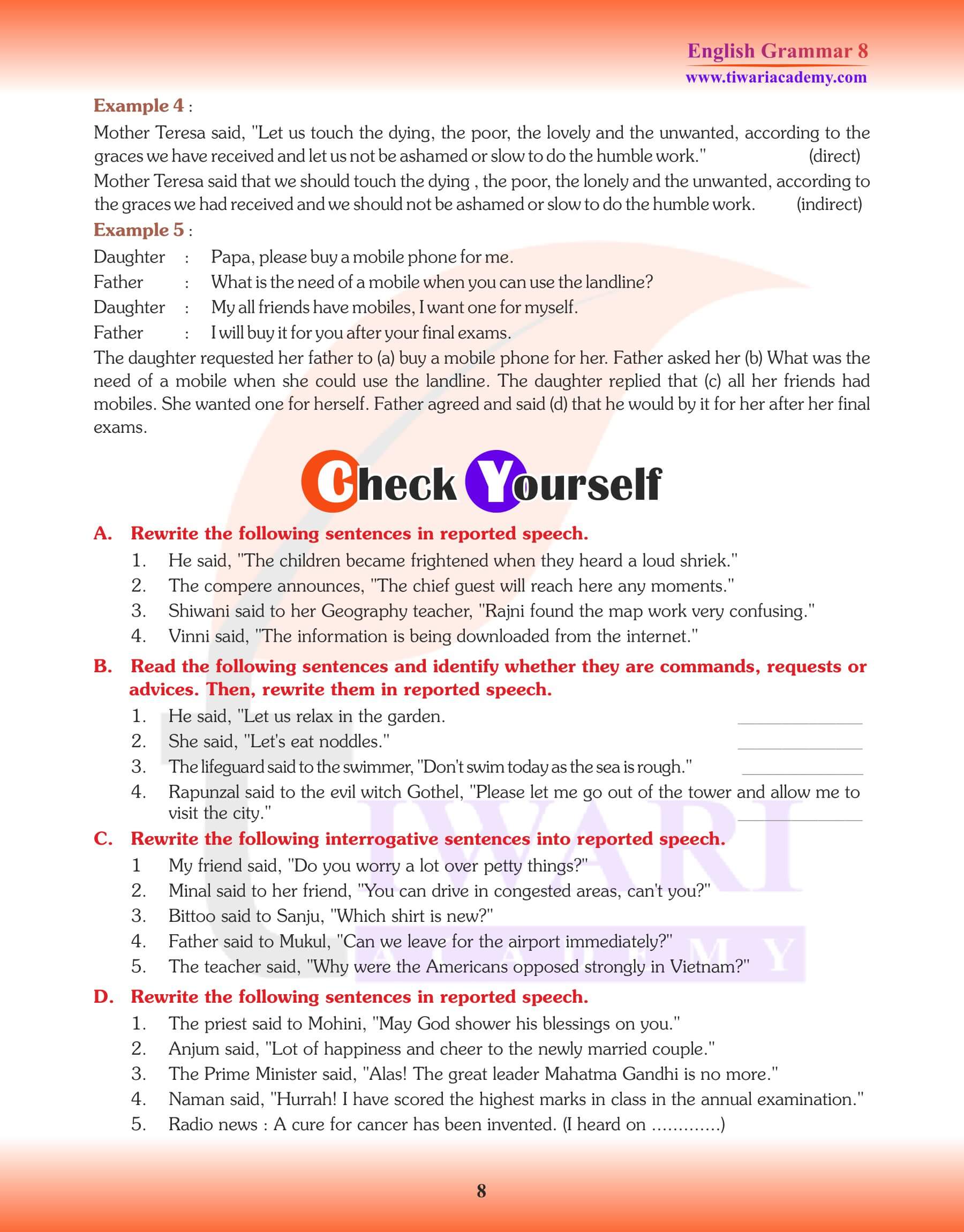Class 8 English Grammar Chapter 16 Direct and Indirect Speech. When we use the actual words of the speaker, we use Direct Speech but when we report what he said in our own words, we use Indirect Speech. The actual words of the speaker are called Reported Speech and the verb introducing the Reported Speech is called the Reporting Verb. What a person says can be written in direct or indirect speech whereas the mode of narration which we use to report others’ thoughts and speech is known as indirect or reported speech.
Grade 8 English Grammar Chapter 16 Direct and Indirect Speech
The intricacies of language and expression become evident when one dives into the fascinating realm of Direct and Indirect Speech. Platforms dedicated to NCERT Solutions, such as Tiwari Academy, provide valuable insights into this topic, ensuring students grasp its nuances as presented in Chapter 16 of Class 8 English Grammar.
Direct Speech: This form of expression captures the verbatim words of a speaker, preserving its original essence. Enclosed within quotation marks, it presents an authentic representation of what someone stated. For instance, She said, “I am going to the market.” Here, the speaker’s exact words “I am going to the market” exemplify Direct Speech.
Indirect (or Reported) Speech: In contrast, Indirect Speech relays the essence of what was spoken but paraphrases it, translating the speaker’s words into the reporter’s own linguistic style. Using our earlier example, the Indirect Speech would be: She said that she was going to the market. Notice the subtle shift in words and tenses.
| Class: 8 | English Grammar |
| Chapter: 16 | Direct and Indirect Speech |
| Content: | Study Material and Notes |
| Academic Session: | 2025-26 |
Direct Speech
- The Reported Speech is put within Inverted Commas . (“ ”)
- The First word of the Reported Speech begins with a capital Letter.
- The Reported Speech is separated by a comma (,) from the Reporting Verb.
In the realm of English grammar, two crucial terms stand out:
Reported Speech: This refers to the actual words or the content of what the speaker articulated. It becomes the crux of our conversion from direct to indirect speech.
Reporting Verb: The verb, often ‘said’ or ‘told’, which introduces the Reported Speech, playing a pivotal role in setting the context for the narration.
Indirect Speech
- Inverted Commas (“ ”) are not used in Reported Speech. It is generally introduced by the Conjunction if., that, what, why, etc.
- The comma separating the Reporting Verb from the Reported Speech is removed.
- The Tense of the Reporting Verb is never changed.
- The Question Mark (?) and the Mark of Exclamation (!) are not used.
- The Interrogative, the Imperative and the Exclamatory sentences are put as statements.
Change the Reporting Verb
| Kind of Sentences | Direct | Indirect |
|---|---|---|
| Assertive | say, says, | said, said to |
| Imperative | said, said to | asked, advised, ordered, requested etc. |
| Exclamatory | said, said to | excaliamed with joy/sorrow etc. |
| Interrogative | said, said to | asked, enquired, demanded of |
| Optative | said, said to | wished/prayed |
Change of the Tense
While changing Direct Speech into indirect Speech, the rule of Sequence of Tenses is followed. If the Reporting Verb is in the Present or Future Tense, the tense of the verb in the Reported Speech is not changed at all.
| Direct | Indirect |
|---|---|
| You say, “She is a nurse.” | You say that she is a nurse. |
| I say, “Mohan is a good boy.” | I say that Mohan is a good boy. |
| I say to Sham, “Ram is a student”. | I tell Sham that Ram is a student. |
| He says to me, “The peon rings the bell.” | He tells me that the peon rings the bell. |
| I shall say to him, “She will go to school.” | I shall tell him that she will go to school. |
| I shall say, “Rita is a doctor.” | I shall say that Rita is a doctor. |
If the Reporting Verb is in the Past Tense, the Tense of the Reported Speech will change.
| Direct Speech | Indirect Speech |
|---|---|
| He said, “Reena combs her hair.” | He said that Reena combed her hair. |
| She said, “He is going to school.” | She said that he was going to school. |
| I said, “I am taking tea.” | I said that I was taking tea. |
| You said, “They are laughing.” | You said that they were laughing. |
| He said, “They were laughing.” | He said that they had been laughing. |
Exception
If the Reported Speech expresses some Universal Truth, Factual Truth, Habitual Fact, Custom, Proverb, Natural Fact, Historical Fact and Scientific Fact, the tense of the verb in the Reported Speech is not changed into the Past, but remains exactly.
The dynamic shift between Direct and Indirect Speech offers versatility in communication. While Direct Speech provides immediacy and emotional resonance by capturing the exact words, Indirect Speech offers flexibility, allowing the narrator to frame the information in a manner that aligns with the broader narrative.
Students diving into this chapter, with resources like those available at Tiwari Academy, will benefit from numerous examples and exercises. These are designed to instill confidence in them to switch between Direct and Indirect modes of speech seamlessly, enriching their expressive capabilities and bolstering their command over English communication.
| Direct | Indirect |
|---|---|
| Mother said, “The dogs bark at the strangers.” | Mother said that the dogs bark at (Habits) the strangers. |
| He said, “The Hindus burn their dead.” | He said that the Hindus burn their dead. |
| He said, “Sea water tastes saltish.” | He said that sea water tastes saltish. |
